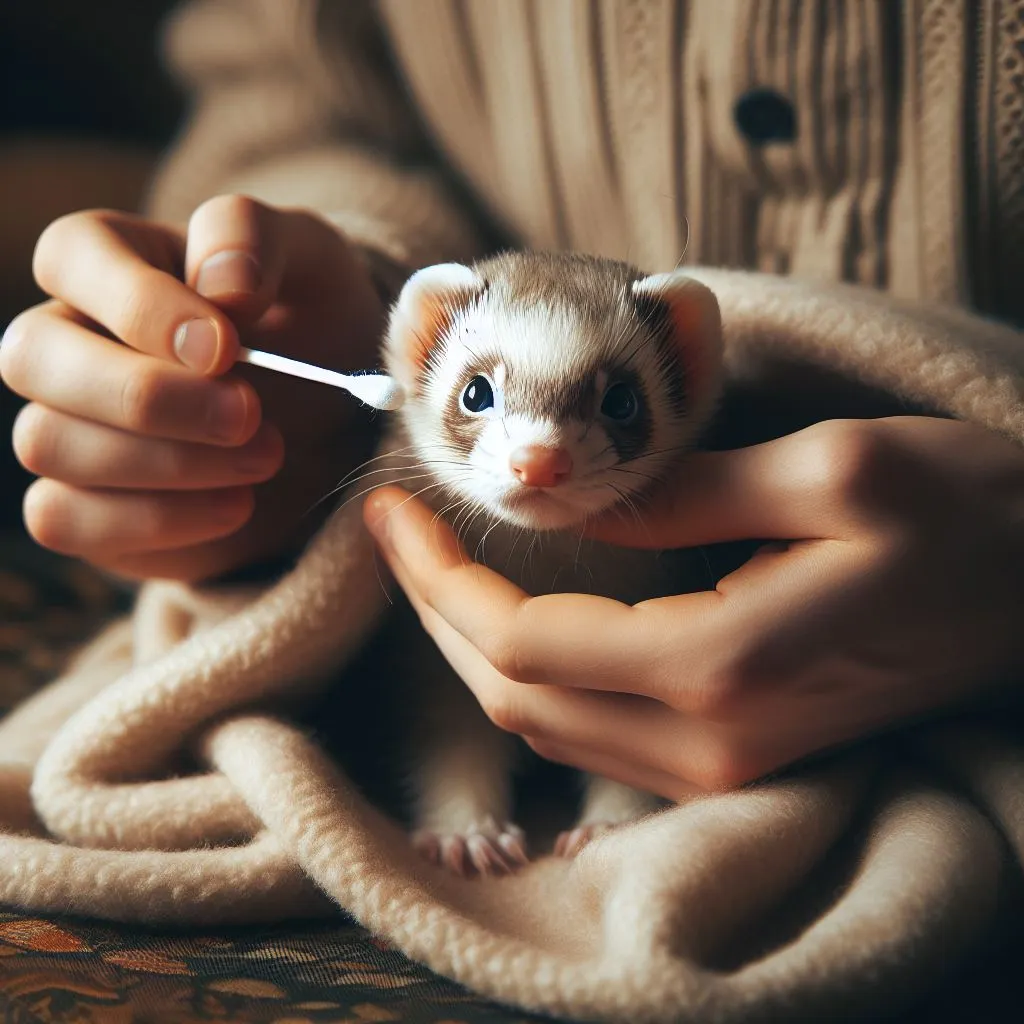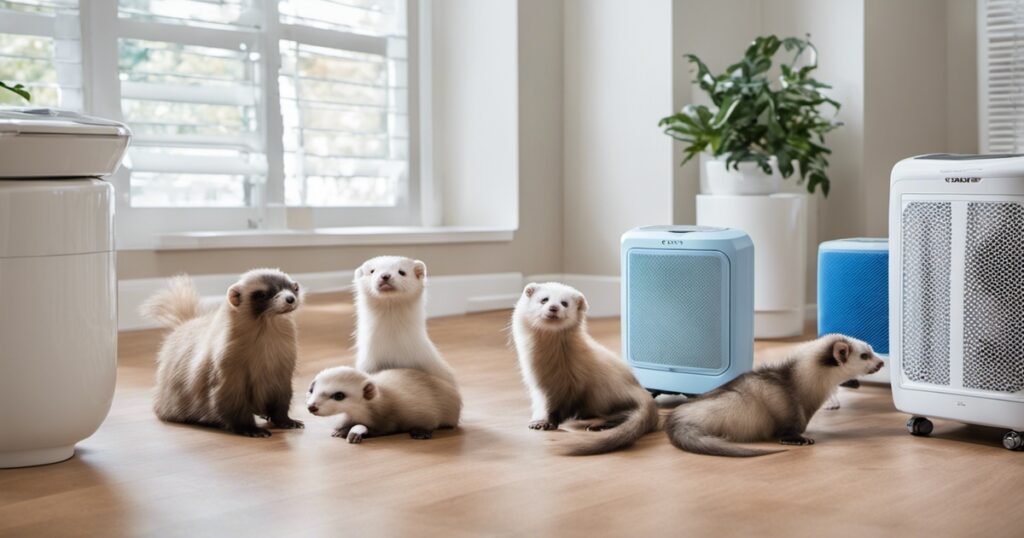Do Ferrets Smell? | (Why?, Possible Solutions, and more…)

The ferret smell is unique compared to other animals due to various factors such as their diet, grooming habits, and scent glands. Ferrets have musk glands that produce a natural scent used for communication and marking territory
This scent can be more pronounced in unneutered males and during mating season. Additionally, ferrets have a specific odor associated with their skin oils and fur that can vary between individuals.
Proper hygiene, diet, and regular cleaning of their living environment can help manage and reduce the intensity of the ferret smell
In this article, we will discuss why ferrets smell, how bad they smell, and provide information on how to reduce it.
Key Takeaways
- Ferrets do have a distinct smell due to their scent glands, which they use for communication and marking territory.
- Regular grooming and cleaning of the ferret’s living environment can help reduce their odor.
- Providing a balanced diet and ensuring proper hygiene can also help minimize the smell associated with ferrets.
- It’s important to understand that some level of scent is natural for ferrets and part of their biology.
Topics Covered In This Article
- Why Do Ferrets Smell?
- How Bad Do Ferrets Smell?
- What Are the Solutions To Reduce Ferret Smell?
- Key Takeaways
- FAQs
Why Do Ferrets Smell?

The following are the reasons behind ferret’s distinct smell
Scent Glands
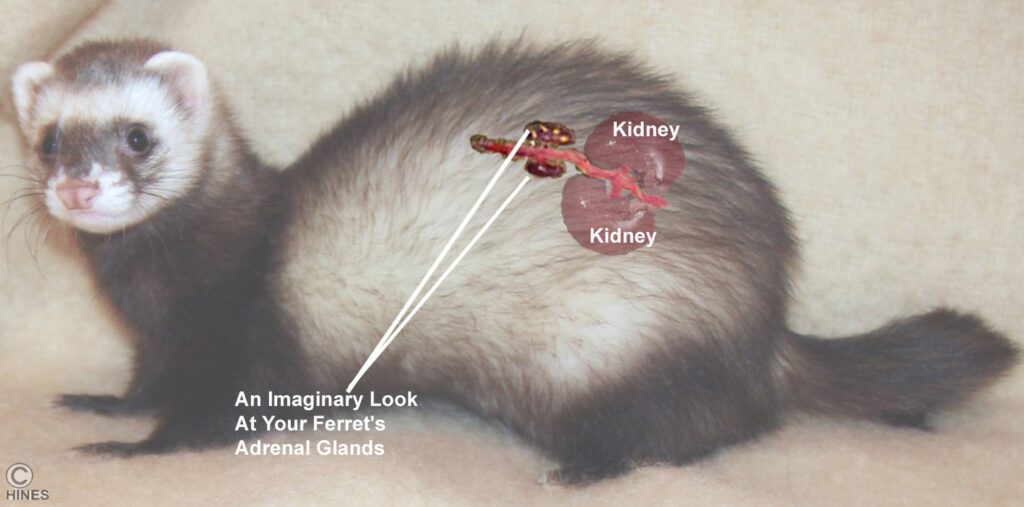
Ferrets have a natural musky smell because of the information they release from their scent glands.
Ferrets use their odor to mark their territory or when they feel afraid. This odor is a characteristic of ferrets and provides important information about their surroundings.
According to the Manual Of Exotic Pet Practice, most of the ferrets sold in the United States have their anal glands removed through a process called de-scenting. (1)
Female ferrets have their ovaries and uterus removed whereas male ferrets have their testicles removed. The reason behind this is to prevent reproduction and to prevent reproductive cancer and infection
Removing their glands does not guarantee that the distinct odor of your ferret will disappear completely they may still have it.
According to the Brazilian Journal Of Veterinarian Pathology, information reveals that even though ferrets are descented, they still possess sebaceous glands on their skin which cannot be removed. (2)
Male ferrets have larger information glands as compared to female ferrets.
If there is the presence of heat, the body smell of ferrets can get intense.
Oil On Their Skin
The spreading of ferret oil on bedding and other areas of the house can cause problems.
Most people face this problem and decide to bathe their ferret, but bathing it might worsen the odor.
Bathing the ferret removes oil from its fur, causing their glands to make more oil and make the smell worse.
This can also make their skin dry and cause other skin problems.
If you don’t descent your ferret, its glands will produce more oils, which will make it smell worse.
Most vets recommend fixing your ferrets when they are 5 to 7 months old.
You can contact the vet near you if you are having major issues with your ferret’s odor.
Improper Hygiene

Ferrets can get poop on their fur and feet, especially if they have diarrhea.
In the world of ferrets, they may also have ear and dental problems, which can cause some strong smells.
If you keep ferrets in a small cage, it can become messy and smelly quickly.
Consider providing multi-level cages to your lovely ferrets as it contains more space.
If multi-level cages are not suitable for your ferret, then you can invest in the largest cage that fits within your budget.
If you have more than 3 ferrets, it’s a good idea to have multiple cages.
Remember to always keep them in pairs for your convenience and the well-being of your ferrets.
Giving some free roam time during the day to your ferrets can be a very good option.
Ferret cages must have good airflow to avoid ammonia buildup, suffocation, heat stroke, and strong odors according to Oathall Vets. (3)
How Bad Do Ferrets Smell?
For a new ferret owner, it can be a lot more difficult as their distinct ferret odor is unlike any other animal.
However, there is plenty of information available to help you navigate this unique aspect of owning a ferret.
Most ferret owners become accustomed to the smell of their ferret or simply love the information and do not even notice.
Ferrets have a natural smell that doesn’t go away with cleaning. This information is important for potential ferret owners to know.
If you don’t like the musky odor of a ferret, it’s best not to have them as pets. Ferrets can emit a strong odor, so if you find this unpleasant, it’s important to consider this information before deciding to keep them as pets.
What Are the Solutions To Reduce Ferret Smell?
The following are the solutions to reduce ferret smell
- Optimizing The Ferret Cage
- Ventilation
- Proper Nutrition
- Practice Appropriate Grooming
- Litter Train Your Ferret
- Using An Air-Purifier
- Check For Illness
Optimizing The Ferret Cage
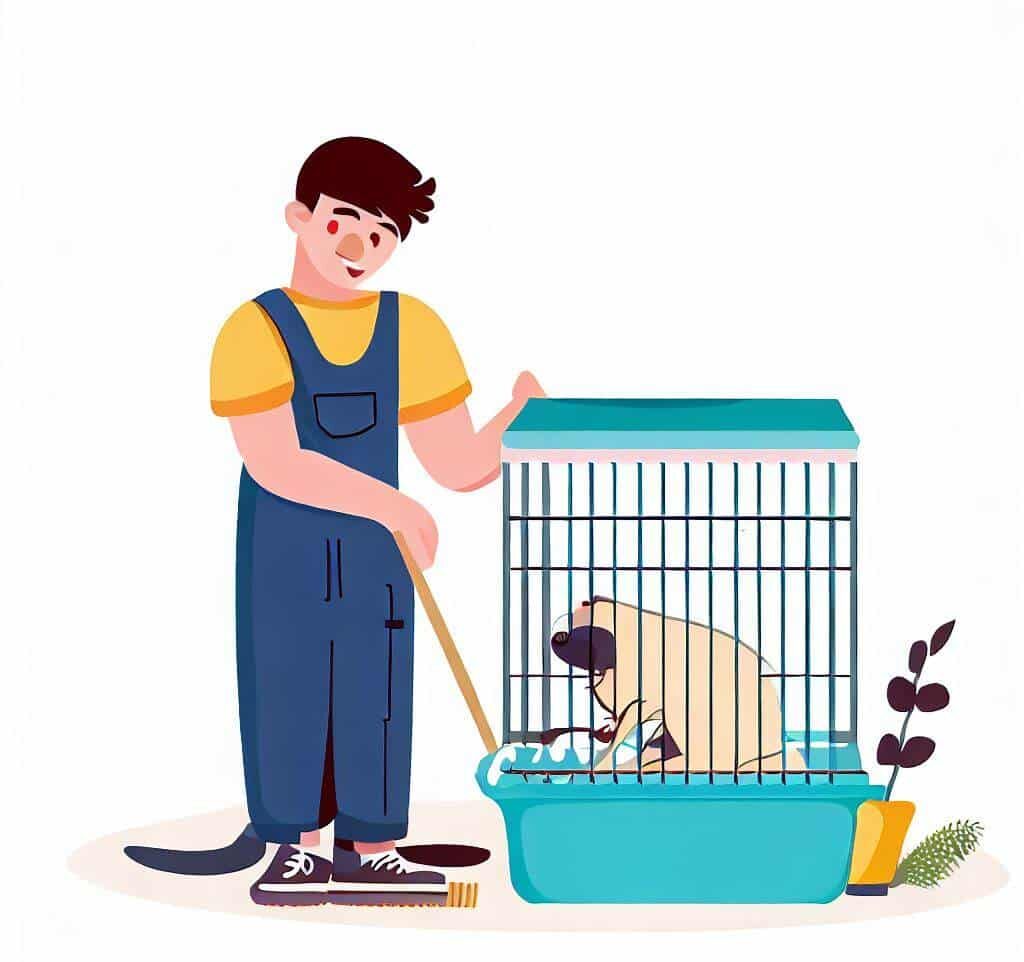
Having a clean and tidy cage for your ferrets can be the first step to reducing the ferret smell. Try spot-cleaning your ferret cage once a day and deep-cleaning it once a week. It is important to clean the bedding, blankets, litter box and surfaces with a high-quality cleaner.
Related Read: How To Clean A Ferret Cage?
I would recommend cleaning the ferret cage with vinegar and water as it has worked for me and many other owners.
The ferret cage should be large enough to have one or more ferrets and enough space for toys, food, and a litter area. Having a tight cage can cause a lot of dirtiness to your ferret which will lead to more smell.
Try to avoid having mesh-based cages as the ferret’s claws can get stuck in them which can cause various infections.
What Are the Things That Are Required In A Ferret Cage?
The following are the things that are required in a ferret cage
- Bed
- Litter Box
- Toys
- Bowl Of Water Or Water Bottle
- Pipes Or Tunnels
What Is the Appropriate Size For A Ferret Cage?
A ferret cage should be at least 24″ x 24″ x 18″ high or 60 cm x 60 cm x 45 cm in size according to VCA Hospitals. Having a floor height of at least 2.5 feet can also help prevent injuries if your ferret tries to jump inside the cage.
This can ensure a comfortable environment for your ferrets as they can move around freely inside the cage and ferrets also grow in size quickly. You can also look for a good cage that is larger than the above mentioned size if you have multiple ferrets.
Ventilation
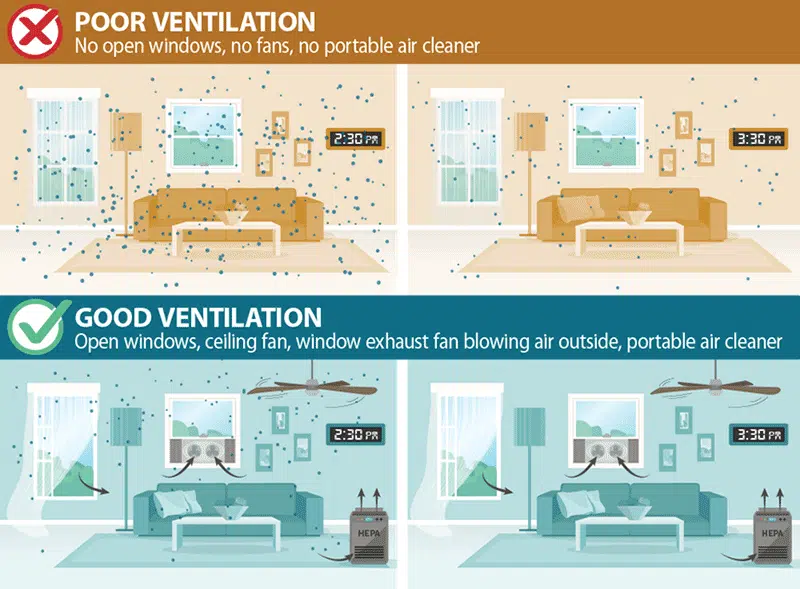
Having a proper ventilation inside the ferret’s room helps to get the smell outside of the house rather than it being stuck inside with no way out. Most ferret owners place a fan which is positioned away from the cage to help the air flow outside the house. Make sure that the ferret room is spacious enough to make your ferret feel safe and secure inside of it.
Proper Nutrition

Providing proper nutrition to your ferrets can affect how they smell, just like how your own diet can affect your body odor. It also leads benefits such as better health and less prone to diseases which can help to improve their lifespan and their overall well-being.
What Is A Proper Diet For A Ferret?
A proper ferret diet consists of high-quality animal protein, low carbs, and low fat. You can also provide them whole prey animals such as mice, rats, birds, rabbits.etc and other small mammals as ferrets in the wild are accustomed to having it. This is because ferrets lack the flexibility in their gastrointestinal tract to process plant based foods.
Even in the wild the only time that a ferret consumed a plant based food as from the gastrointestinal tract of the animal that they just hunted.
When feeding them whole prey animals make sure to have a proper surface that’s easy to clean which prevents dirtiness near the ferret habitat or your house.
Before choosing a ferret food make sure to meet the following requirements.
| Nutrient | Amount |
|---|---|
| Animal Protein(High-Quality) | 30-40% of the diet |
| Fat | 15-25% and up to 30% for pregnant ferrets |
| Fiber and Carbohydrates | Less than 3% of the diet |
Avoid plant protein in your ferret’s diet and foods such as corn and fish.
In the past, people used to give cat food to ferrets due to its unavailability.
Its major problem is the sugar content, which can lead to insulinoma (diabetes) in ferrets according to Highcroft Veterinary Refferals. (4)
Check for fish ingredients; fish is safe but can worsen odor and isn’t preferred by many ferrets. Consider poultry as a better protein source.
When it comes to feeding your ferret, it’s best to stay away from processed foods. You never know what ingredients are actually in there.
Instead, opt for whole foods and possibly even organic foods.
Natural diets are beneficial to your ferrets because of the presence of adequate moisture.
Ferrets without a good diet can get oily fur, smelly skin, and extra-smelly poop.
Fixing their diet usually makes them less stinky.
Also, explore bi-odor supplements at the pet store to reduce smell, but they may not work for all ferrets.
Ensure your ferret has access to water.
Practice Appropriate Grooming

Ferrets (like any other animal) require regular grooming. According to the Ferret Grooming article we have published, here are the steps to proper ferret grooming
Nail Trimming

Nail cutting should be done once a week for proper ferret grooming.
The following are the required equipment when you are trimming your ferret’s nails:
- Nail Clippers for Small Animals Or Human Nail Clippers
- Styptic Powder for bleeding prevention.
- Any ferret treats for distraction
After you have the required equipment here are the steps to trim your ferret’s nails
- Identify the clear part of the nail that has a thin pink layer underneath it which is actually the blood vessel.
- For distraction place a treat in its belly and start trimming the nails.
- Ask for help from someone if you are facing any difficulties
- If someone arrives to help you tell them to scruff the ferret and start cutting the nails
Dental Care
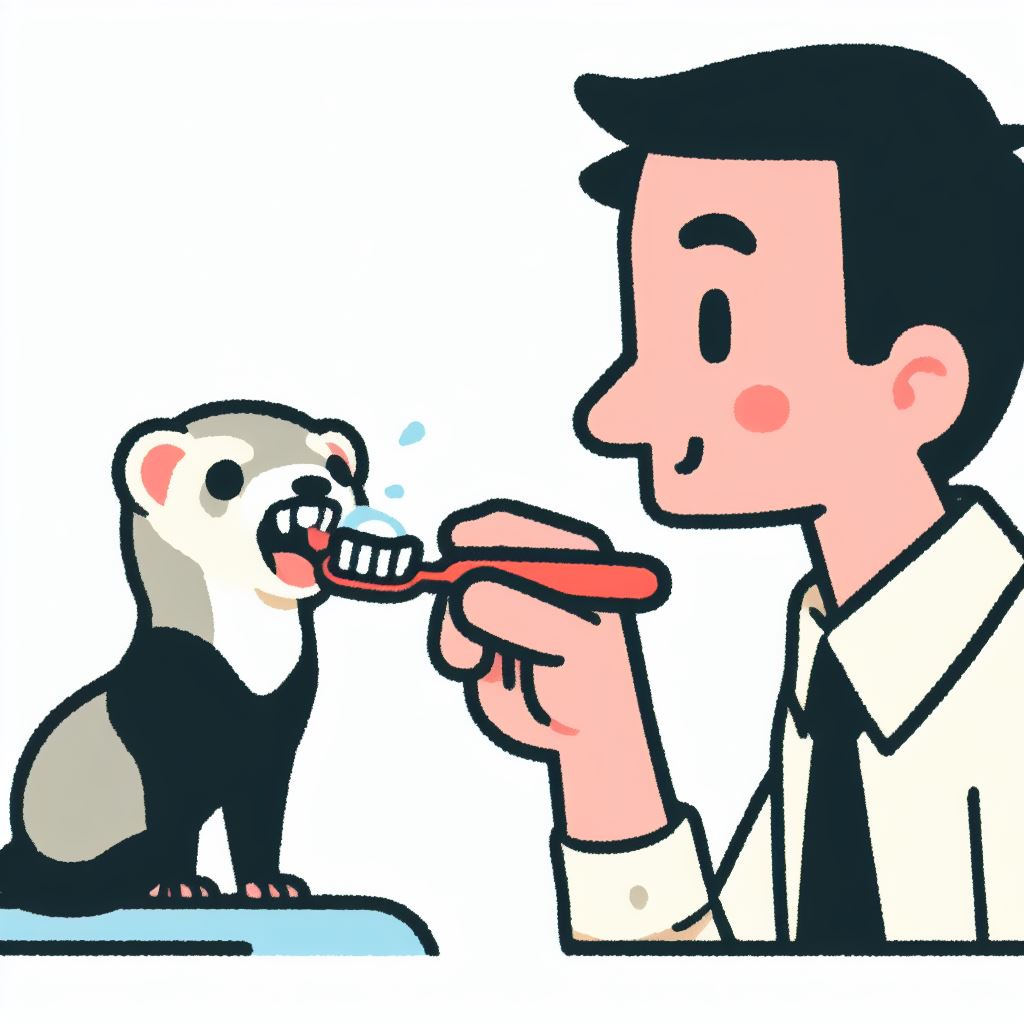
Dental care should be done twice per month with pet toothpaste
When doing dental care for your ferrets use pet toothpaste instead of using human toothpaste as it contains fluoride which is harmful to your ferrets.
Try to provide soft food to your ferrets over crunchy ones as soft foods are more gentle towards the ferret’s teeth
Massage your ferret’s cheeks and mouth before doing the cleaning.
First, brush your ferret’s teeth without any toothpaste and gradually apply the toothpaste for it to get a taste.
Increase the dental care session time gradually.
From time to time check for any dental problems by visiting to a Vet Nearby.
Provide dental treats that are designed for pets to ease the process.
For a professional dental cleaning take your ferret to a veterinarian every 1 to 3 years.
Ear Cleaning
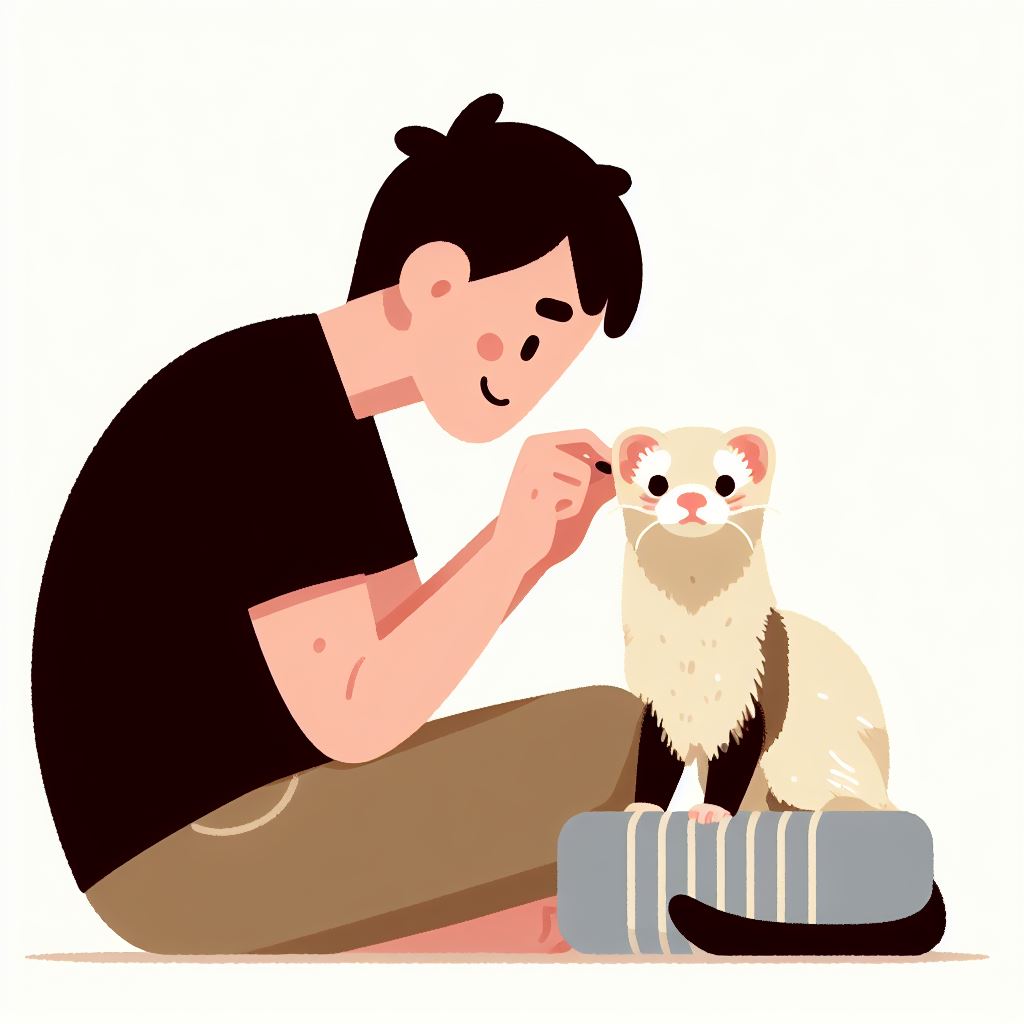
Ferret ear cleaning should be done once a month to maintain cleanliness and prevent any issues.
Ear cleaning for ferrets is necessary because it helps to reduce odor, prevents ear mites, and protects from any ear infections.
Some of the common ear problems in ferrets are:
- Wax Buildup
- Ear Mites
The following are the things required for a proper ferret ear cleaning
- Ear Cleaning solution designed for ferrets
- Cotton swabs or cotton wool
- Treats for distraction
After you have the necessary equipment, follow these steps for proper ear cleaning
- Handle your ferret or ask for help from someone
- Clean the outer part of the ear to remove any visible debris using cotton swabs or cotton wool
- Put a few drops of ferret ear cleanser if the ear appears to be very dirty in order to remove any additional wax buildup. Do not use too many drops as it can be harmful to the ferrets.
- Wipe any excess cleanser
- Offer treats gradually after each step or at the end.
Seek veterinary care if you notice dark wax, crust, or excessive scratching.
Bathing Your Ferret
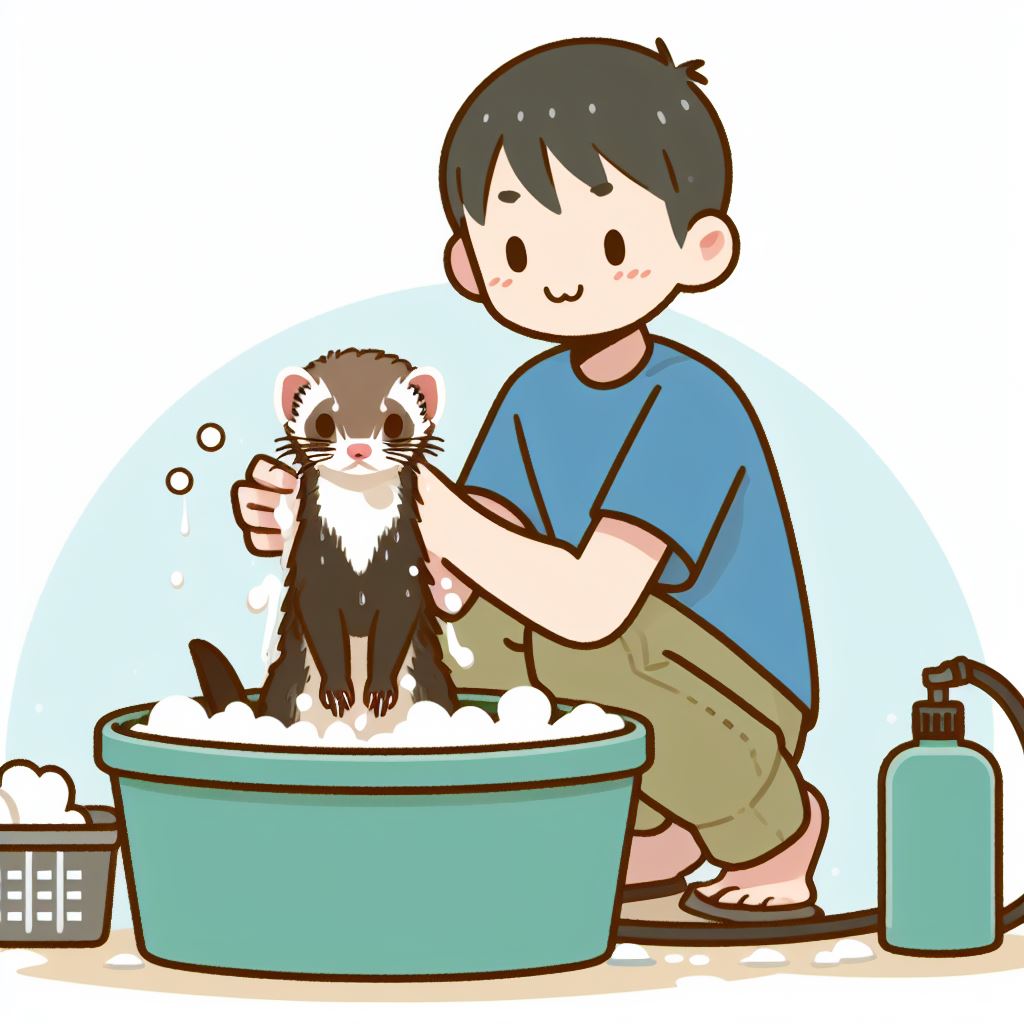
Bathing your ferret should be done not more than once a month because frequent bathing can strip out their natural oils and it will cause the oil glands to produce more oil resulting in a musky odor.
Overbathing can also cause skin issues such as itchiness and infections caused by parasites
The following are the things required to bathe your ferret
- A comfortable bathing space
- A tub filled with shallow water
- Ferret’s Toys
- Water temperature of 101-103 degrees Fahrenheit.
- A shampoo made for ferrets
After you have everything ready these are the steps to bathe your ferret:
- Make your ferret’s fur wet thoroughly and slowly.
- Gently apply the shampoo to their back and massage it to their coat.
- Do not get shampoo under their eyes or mouth.
- After the bathing is done rinse off all the shampoo completely and make sure no residue is left.
- Repeat the same steps again if you are using a conditioner.
- Refill the bathing space with fresh water for a final rinse
- Do not leave any residue on the ferret’s skin before taking them out of the bath
Litter Train Your Ferret

Litter training your ferrets can help you make sure your ferret poops properly in the litter box. Use the best ferret litter box that has a low entrance and tall sides.
Before training your ferret to use a litter box you need to have proper litter box placement techniques. The following are the ways for proper placement of litter box
- Place the litter box in an easily accessible, low-traffic area with some privacy.
- Use Multiple litter boxes if you have multiple ferrets
- Have a small box on each level if you have a multi-level cage
- To catch any poop droppings place absorbent pads under each litter box
After the proper placement of a litter box follow these steps to observe the ferret’s potty habits
- Try to recognize signs that your ferret needs to go to the bathroom
- Observe when your ferret does the pooping.
- Identify the preferred pooping spots of your ferret inside the house and place the litter box nearby it.
- If you notice any changes in behavior then it might be a health issue so contact a vet immediately if that’s the case.
After recognizing your ferret’s behavior you can have an idea about the proper placement of the litter box and slowly your ferret will be aware and poop in the litter box that you placed.
Using An Air-Purifier
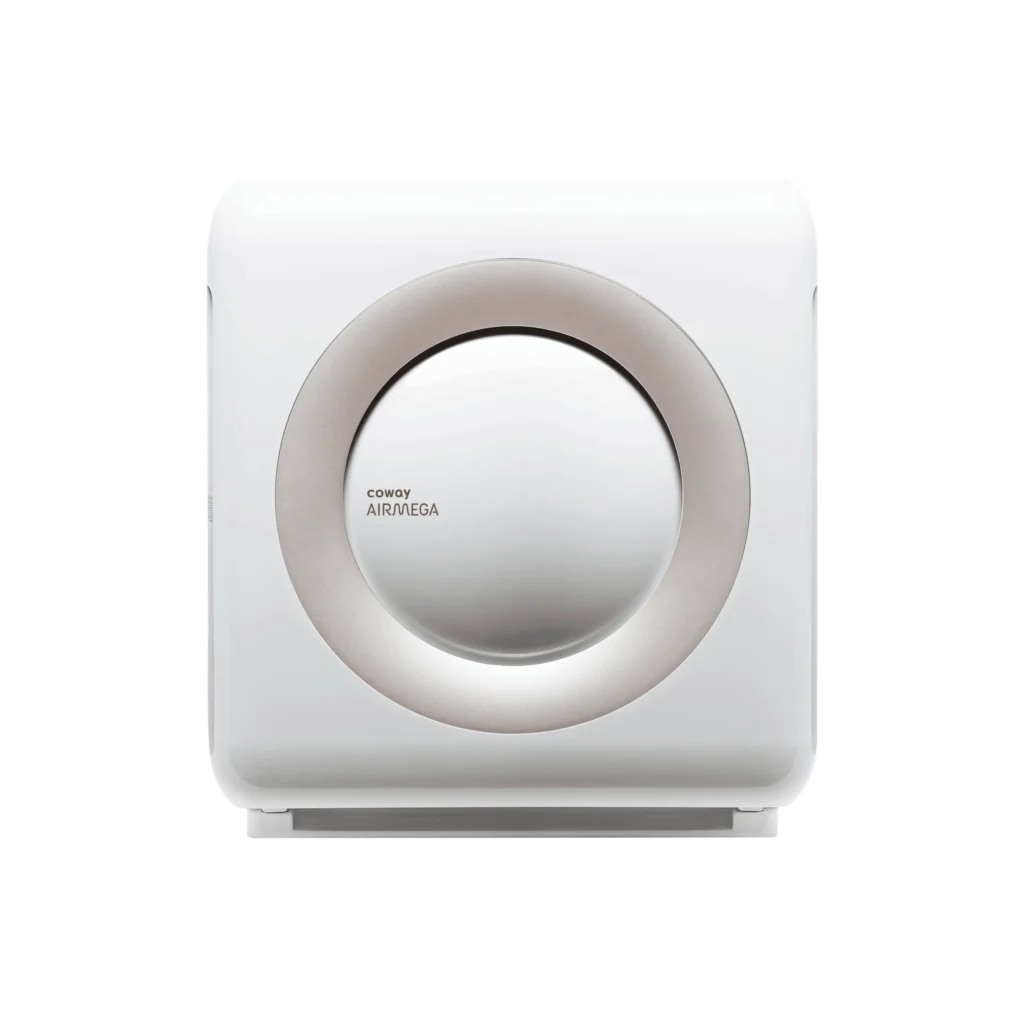
An air purifier can hide the ferret smell, which is good for many ferret owners.
Place it near your ferret’s cage for the most efficiency.
If you do not have an air purifier in your ferret’s room, then opening all the windows of the house can be beneficial.
This can let in the fresh air from outside and help to control the odor of the ferret.
If you are struggling to choose an air purifier then you can look at our article on the best air purifiers for ferret odor
Check For Illness
If you’re still experiencing ferrets stink in your house then your ferrets might be sick or ill.
Most ferret owners do not realize this but sickness or illness can cause the musky odor of ferrets.
Contact a Vet nearby to help solve this issue.
FAQs
Ferrets do not pee everywhere, ferrets are naturally very clean animals as they like to pee and poop in one location.
A dirty cage is one of the many reasons behind a ferret smell. Regular cleaning of the cage is necessary to reduce the ferret smell.
Yes, ferrets have a natural tendency to emit a false odor when they are stressed, scared, or overstimulated.
If you don’t do proper dental care of your ferret then it can cause bad breath. Make sure to provide your ferrets with proper dental care regularly.
Ferret poop can be very smelly and can make the owner be uncomfortable being around it. Provide your ferret with proper litter training so that it does not poop around the house.
Sources
VeryWell Animals uses high-quality sources, such as scientifically reviewed studies in its articles. Discover our unique approach to fact-checking and ensuring our content remains accurate and trustworthy.
- Mitchell, Mark A.; Tully, Thomas N. (2009). – Manual of exotic pet practice. p. 372. ISBN 978-1-4160-0119-5.
- Sebaceous epithelioma in a ferret (Mustela putorius furo)– Brazilian Journal Of Veterinarian Pathology
- Hyperthermia – Overheating – Oathall Vets
- Insulinoma in your ferret – Highcroft Veterinary Refferals
Last Updated on 8 March 2024
Waman Nuka is a seasoned wordsmith and a passionate animal enthusiast with decades of experience in the world of animal care. With a deep love for all creatures great and small, Waman’s journey in the realm of animals started as a young boy exploring the lush forests surrounding his childhood home.

